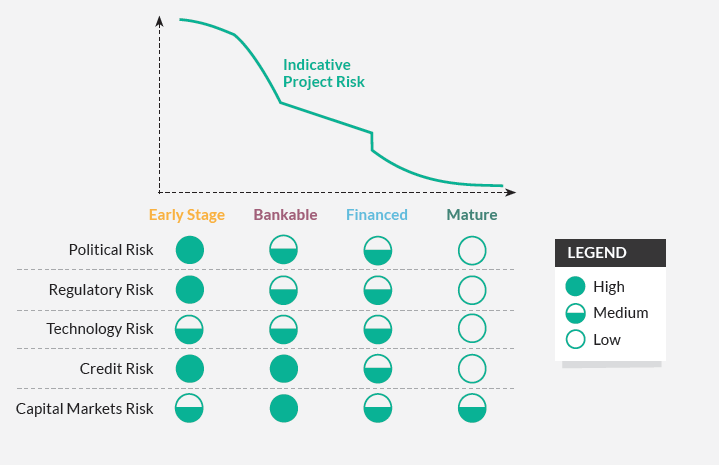Blog
De-Risking Smart Energy Solutions for SMEs – A Top Priority For Clean Growth

There is no need for convincing that the imminent need for Smart Energy Communities is more apparent and urgent now than ever [1].

From the results of QUEST’s 2016 Market Survey, we learned investments in Smart Energy Solutions are motivated primarily by high energy costs, followed by a need to reduce greenhouse gas (GHG) emissions, to comply with policy and regulation, and to improve reliability and risk mitigation [2]. We also identified that energy efficiency and energy management technologies rank at the top of the most important technologies and services needed to meet these objectives. Communities – small, rural, remote, urban and Indigenous – experience real barriers when it comes to implementing new energy technologies, and among the most commonly reported include a lengthy payback period, a lack of initial capital and policy failure.
QUEST has documented that there are more than 440 communities who are engaged in community energy planning, representing 53 percent of the population.The implementation of CEPs provides a comprehensive approach to improving the way energy is used in communities, helping communities to become Smart Energy Communities.
Communities that have developed a CEP have identified the need to deploy mature clean technologies for energy efficiency, renewable energy, the efficient use of conventional energy sources, and for transportation [3]. These plans are developed by local governments, utilities, industry, and business owners, and represent a local clean technology investment roadmap for investors for projects related to energy efficiency, storage, harnessing local renewable energy, and the efficient use of conventional energy delivery systems.
Although there are fewer limitations for accessing capital to invest in large scale clean energy technology and no shortage of community-based Smart Energy Solutions, a significant challenge remains. Many Smart Energy Solutions, such as district energy systems, combined heat and power, smart grids, energy efficiency retrofits, the construction of new ‘net zero’ buildings, and the use of alternative fuels, such as renewable natural gas, are best positioned to support Small to Medium Enterprises (SMEs). Of the 1.7 million private sector employers in Canada, most of them are under 20 people (86 percent).
This sector often lacks the capacity and funds to procure the kinds of professional advisory services such as engineering studies, debt financing, equity capital raising, power purchase agreements, and associated legal services for Smart Energy Solutions, that larger companies typically would underwrite. As a result, many of the initiatives identified in the 440 community energy plans are at risk of not moving forward from an idea to construction to operation.
A well-known risk in the project development investment stage is not the actual financing of the project, but rather the ability to access the technical and financial capacity required for the project development stage (see Image 1). Most proponents, at the SME level, experience difficulty attracting financing from investors because either they are too small to warrant the cost of due diligence by the investors, or the projects do not meet the risk profile required by investors.
Specifically, Smart Energy Solutions often do not make the investment scale for large investors. In 2015/2016, the average transaction cost for an investment of scale was $440M by institutional investors (e.g., pension funds), while cleantech investors (e.g., commercial investors) were often looking for projects greater than $50M. For most Smart Energy Solutions, such as district energy or micro-cogeneration, the investment scale is much less from hundreds of thousands to $25M.
Image 1: De-risking the project development stage
Source: Mind the Gap Bridging the Climate Financing Gap with Innovative Financial Mechanisms. November 2016.
QUEST believes that helping SMEs get their Smart Energy Solutions advanced is critical with regards to addressing climate change objectives and ensuring local business competitiveness. In a national survey of Canadian executives, 86 percent cited energy costs as a high or moderately high concern to their business, with the highest rates of concern expressed by SMEs [4].
QUEST is supporting SMEs across Canada to implement Smart Energy Solutions through several initiatives, including:
The Low Carbon Partnership (TLCP)
The Low Carbon Partnership was formed to help Canadian businesses, especially SMEs, drive clean growth, reduce carbon emissions, and foster a prosperous, green, and healthy future.
TLCP is seeking support from the Government of Canada to engage more than 4,000 businesses in over 300 communities, to deliver $150M in cost savings to those engaged, to reduce GHG emissions by 500K tonnes (rising to 1.3M tonnes reduced by 2025), and to foster innovation in business practices capable of accelerating the transition to a low carbon economy.
Operating eight caucuses and their related Working Groups across Canada.
QUEST’s provincial and regional Caucuses provide a place for diverse experts and stakeholders from governments, utilities, and energy service providers, the real estate sector, the product and professional service sector, among others, to meet regularly to learn from one another, evaluate solutions and focus on bringing Smart Energy Communities to life. QUEST Caucuses collaborate through Working Groups focused on change initiatives and investing in solutions. They share information and experience in order to increase the capabilities of all members and organizations. There are eleven Working Groups established across Canada with more under development, including the Combined Heat and Power (CHP) Working Groups in NS, ON and AB, the Municipal Energy Working Groups in NB, NS, ON and AB, the ON Climate Change and Energy Policy Task Force, the Nova Scotia Buildings Working Group, the National District Energy Working Group, and the National Smart Energy Leaders’ Dialogue.
Undertaking to influence decision-makers to set policy and take actions that would advance Smart Energy Solutions.
Earlier in the year, QUEST was invited to testify in front of the Natural Resources Standing Committee concerning the study entitled, De-risking the Adoption of Clean Technology in Canada’s Natural Resources Sector. The report was tabled with parliament in June and several key elements of the recommendations put forward by QUEST were incorporated into the final report.
We know that communities will acquire a new and different shape in the decades ahead – because of rapidly changing demographics, lifestyle preferences, changes in business practices, and cost constraints. As result, the way we move, use and produce energy will need to evolve as well. We also need to consider a broader integrated energy system, one that can accommodate the clean growth technology applications we are investing in to meet our energy and climate change objectives. Ensuring these advances will require a concerted effort to address the challenges faced with the de-risking of Smart Energy Solutions for SMEs.
References
[1] Smart Energy Communities improve energy efficiency, enhance reliability, cut costs, and reduce greenhouse gas emissions, and they do this by integrating conventional energy networks (electricity, natural gas, district energy, and transportation fuel) in communities to better match energy needs with the most efficient energy source; integrate land use; and harnesses local energy opportunities.
[2] Smart Energy Solutions are technological and fuel innovations that take advantage of opportunities to improve energy efficiency beyond individual buildings to encompass whole communities.
[3] https://questcanada.org/wp-content/uploads/2018/08/Community-Energy-Planning-The-Value-Proposition_Full_Report_2016.pdf
[4] The Gandalf Group. View from the Top: The C-Suite’s View of Energy and the Environment. Presentation at
Sign Up
Join the Conversation!
Sign up to get the latest news and updates about QUEST Canada events and receive QUEST Canada's monthly newsletter.


